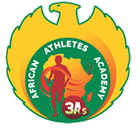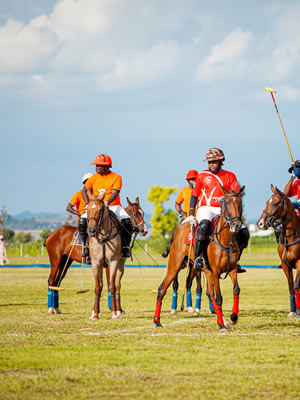At the African Athletes Academy (3As), we believe that peak performance on the field starts with a foundation of solid nutrition and wellness. Our expert team of nutritionists and wellness professionals is dedicated to providing athletes with the knowledge and resources they need to fuel their bodies and minds effectively. Here are some essential tips and insights from our experts to help athletes achieve their best.
The Importance of Proper Nutrition
Balanced Diet
A balanced diet is crucial for athletes. It provides the essential nutrients needed for energy, recovery, and overall health. Our experts recommend a diet rich in:
- Complex Carbohydrates: Whole grains, fruits, and vegetables provide sustained energy.
- Lean Proteins: Sources like chicken, fish, beans, and legumes help in muscle repair and growth.
- Healthy Fats: Avocados, nuts, seeds, and olive oil support brain function and hormone production.
- Vitamins and Minerals: A variety of colorful fruits and vegetables ensure athletes get a wide range of nutrients necessary for optimal performance.
Hydration
Staying hydrated is essential for maintaining peak performance. Dehydration can lead to decreased energy levels, impaired focus, and increased risk of injury. Our experts suggest:
- Drink Water Regularly: Athletes should aim to drink water consistently throughout the day, not just during training.
- Electrolyte Balance: Include drinks that contain electrolytes, especially after intense workouts, to replenish lost minerals like sodium, potassium, and magnesium.
- Monitor Hydration Status: Pay attention to urine color—pale yellow indicates proper hydration, while dark yellow suggests the need for more fluids.
Pre-Training and Post-Training Nutrition
Pre-Training
Fueling your body before training is crucial for optimal performance. Our experts recommend:
- Timing: Eat a meal rich in complex carbohydrates and moderate protein about 2-3 hours before training.
- Snacks: If eating closer to training, opt for easily digestible snacks like a banana or yogurt about 30-60 minutes prior.
- Avoid High-Fat Foods: These can slow digestion and make athletes feel sluggish during workouts.
Post-Training
Recovery nutrition is just as important as pre-training nutrition. To maximize recovery, our experts suggest:
- Protein and Carbohydrates: Consuming a combination of protein and carbohydrates within 30 minutes after training helps to replenish glycogen stores and repair muscle tissue.
- Examples: A protein shake with fruit, chocolate milk, or a turkey sandwich on whole grain bread.
- Hydration: Continue to drink water and consider an electrolyte drink if the workout was particularly intense.
Nutritional Supplements
While a balanced diet is the foundation of good nutrition, supplements can sometimes help fill in gaps. Our experts at 3As recommend:
- Protein Powders: Useful for meeting protein needs, especially after intense training.
- Multivitamins: Can help ensure athletes are getting all necessary vitamins and minerals, particularly if they have dietary restrictions.
- Omega-3 Fatty Acids: Found in fish oil supplements, these support heart health and reduce inflammation.
It’s important to consult with a nutritionist before starting any supplement regimen to ensure it’s necessary and safe.
Wellness Practices
Mental Health
Mental wellness is just as important as physical health. Our experts emphasize:
- Mindfulness and Meditation: Techniques such as mindfulness and meditation can help athletes manage stress and improve focus.
- Adequate Sleep: Aim for 7-9 hours of quality sleep per night to aid in recovery and mental clarity.
- Counseling and Support: Access to mental health professionals can provide valuable support for managing the pressures of athletic performance.
Injury Prevention
Preventing injuries is crucial for maintaining continuous progress. Our wellness tips include:
- Proper Warm-Up and Cool-Down: Always start with a dynamic warm-up and end with a cool-down to prevent injuries.
- Strength and Conditioning: Incorporate strength training and flexibility exercises to build a resilient body.
- Rest and Recovery: Ensure adequate rest days and use recovery techniques such as stretching, foam rolling, and massages.
Holistic Wellness
Holistic wellness involves a balanced approach to life, including:
- Healthy Relationships: Foster supportive relationships with coaches, teammates, and family.
- Balanced Lifestyle: Manage time effectively to balance training, work, and personal life.
- Positive Mindset: Cultivate a positive attitude and resilience through mental training and goal setting.
Conclusion
At the African Athletes Academy, we are dedicated to supporting the overall well-being of our athletes. By focusing on proper nutrition and holistic wellness, we help our athletes achieve their full potential both on and off the field. These tips from our experts are designed to provide a comprehensive approach to health and performance, ensuring that every athlete at 3As can thrive and succeed.



